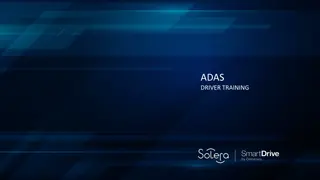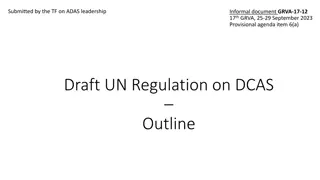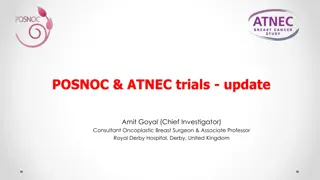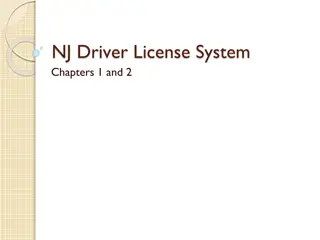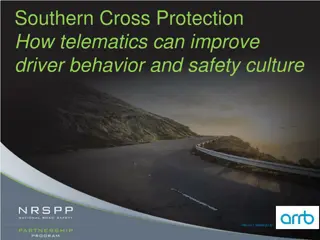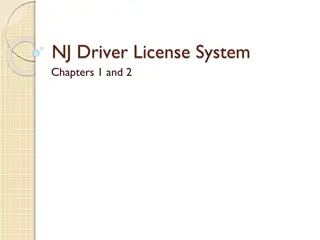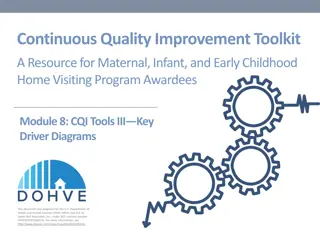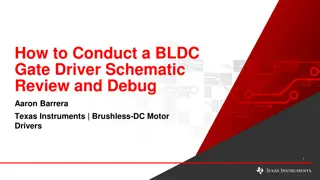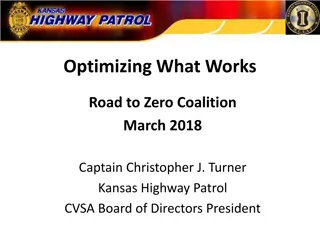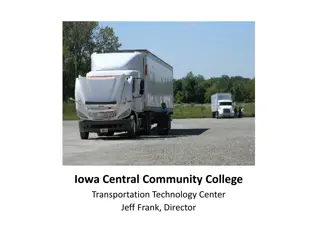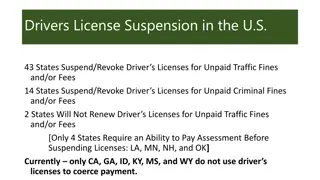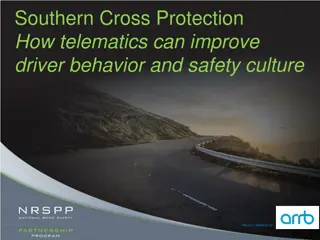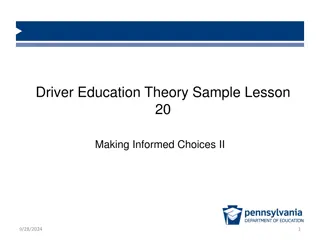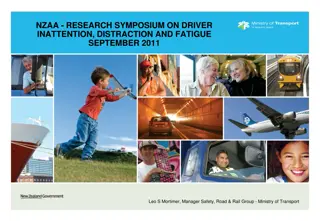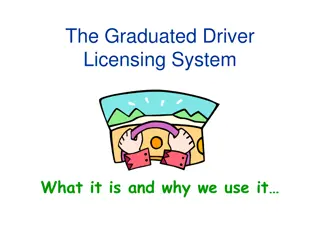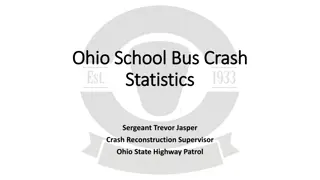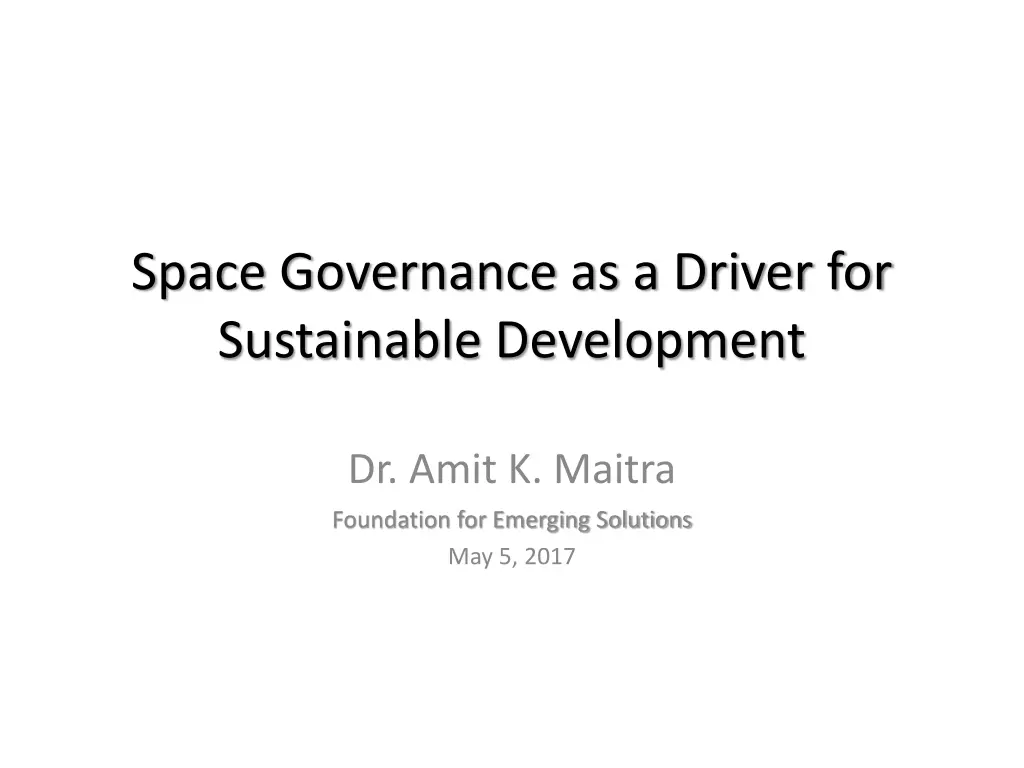
Space Governance for Sustainable Development Dr. Amit K. Maitra Foundation
Explore the role of space governance in driving sustainable development as discussed by Dr. Amit K. Maitra. The analysis covers background insights, approaches, identified gaps, proposed solutions, and a focus on global partnerships in space exploration and innovation. Discover the significant contributions of organizations like COPUOS and UNOOSA towards effective global governance for the peaceful and sustainable utilization of outer space.
Download Presentation

Please find below an Image/Link to download the presentation.
The content on the website is provided AS IS for your information and personal use only. It may not be sold, licensed, or shared on other websites without obtaining consent from the author. If you encounter any issues during the download, it is possible that the publisher has removed the file from their server.
You are allowed to download the files provided on this website for personal or commercial use, subject to the condition that they are used lawfully. All files are the property of their respective owners.
The content on the website is provided AS IS for your information and personal use only. It may not be sold, licensed, or shared on other websites without obtaining consent from the author.
E N D
Presentation Transcript
Space Governance as a Driver for Sustainable Development Dr. Amit K. Maitra Foundation for Emerging Solutions May 5, 2017
AGENDA 1. Background 2. Approach 3. Gap 4. Solution
Background 2014 Montreal Conference TAKE AWAYS 1. Major revisions and improvements of space governance 2. Keep pace with the changing world scene Address Codes of conduct, Transparency and confidence-building measures in outer space activities (TCBMs), Safety concepts, International institutions, International treaties and other agreements, regulations, procedures and standards.
APPROACH Dr. Simonetta Di Pippo underscored critical issues in global governance of space activities. Chief among them, she observed this morning, are (a) Strengthened governance and enhanced infrastructures at all levels (b) Institutional mechanisms to integrate all actors. COPUOS Approaches its work agenda in a structured and comprehensive manner Covers all areas of international cooperation in the Exploration Use of outer space for peaceful purposes. Its notable accomplishments include close coordination with UNOOSA.
GAP The experts on space law, regulations and standards A definite need exists for more effective communication and exchange between the growing number and variety of stakeholders and players in the space arena.
SOLUTION The structure, contributors and the tremendous work of COPUOS and UNOOSA indicate how academia, governments, the private sector and other stakeholders must work together to develop an effective global governance regime for peaceful and sustainable exploration, use and exploitation of outer space for the benefit of all. COPUOS has endorsed a set of seven thematic priorities Selected based on the cross-cutting areas of Governance, Resiliency, Interoperability, Capacity-building and Sustainable development. As Dr. Di Pippo noted this morning these thematic priorities will influence the ideas for UNISPACE+50 and beyond. That is a segue to my proposal for a framework based on cybernetic feedback loop structure
PROPOSED APPROACH Thematic Priority Global partnership in space exploration and innovation Aims Developing partnerships and capabilities Creating new opportunities for emerging space nations so that they derive the benefits of space science and technology Fostering dialogue with space industry and the private sector for meeting global challenges Assessing the effectiveness of the legal regime of outer space Promoting the universality of the five United Nations treaties on outer space Assessing the state of affairs of those treaties, including their relationship with non-legally binding instruments. Developing requirements for enhanced information exchange and notification procedures under the United Nations Register and within notification mechanisms established under the treaties and principles on outer space. 1 Legal regime of outer space and global space governance: current and future perspectives Enhanced information exchange on space objects and events 2 3
COPUOS UNOOSA ccOc CoC SAFETY INTL INST. STDS TCBMs Space Debris Nuclear power source applications Radio-frequency spectrum Crowding of satellites


